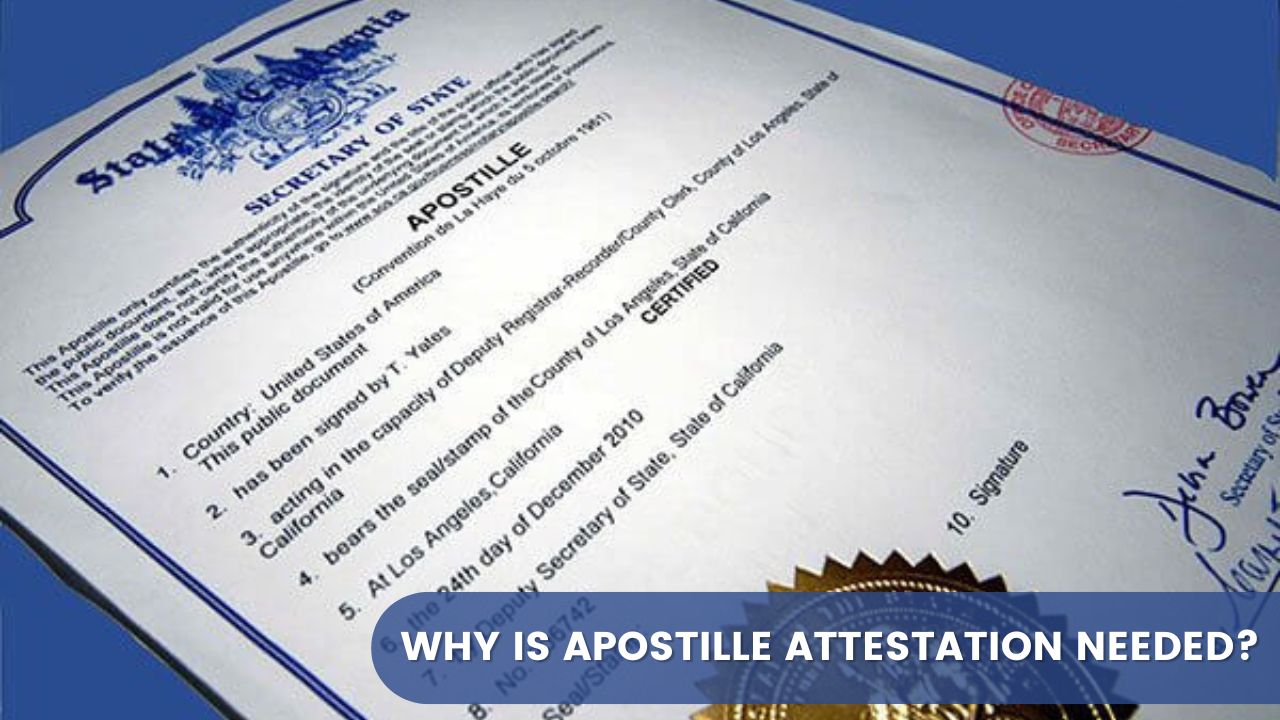Apostille attestation is a critical process for validating documents internationally, ensuring their acceptance in foreign countries. This certification is vital for individuals and businesses involved in global operations. But why exactly is apostille attestation needed? This article will delve into the reasons behind the necessity of apostille attestation, its process, and its significance.
Understanding Apostille Attestation
Apostille attestation is the process of certifying documents for international use under the Hague Convention. This certification ensures that documents issued in one member country will be recognized in another member country, simplifying international dealings.
History of Apostille Attestation
The concept of apostille attestation originated from the Hague Convention of 1961, which aimed to abolish the need for legalization of foreign public documents. This treaty created a standardized process for document verification, known as apostille.
Why is Apostille Attestation Needed?
Apostille attestation is needed to authenticate documents for use in foreign countries. It provides legal recognition and ensures that documents such as birth certificates, educational degrees, and business contracts are valid internationally. This process is crucial for avoiding legal complications and ensuring smooth international operations.
Documents Requiring Apostille Attestation
Various documents may require apostille attestation, including:
- Personal documents: Birth certificates, marriage certificates, passports.
- Academic documents: Diplomas, transcripts, degrees.
- Commercial documents: Contracts, incorporation documents, powers of attorney.
The Apostille Process
The apostille process involves several steps:
- Document Preparation: Ensure the document is correctly filled and signed.
- Submission: Submit the document to the appropriate government office.
- Verification: The government office verifies the authenticity of the document.
- Issuance: An apostille certificate is attached to the document.
Country-Specific Apostille Requirements
Apostille requirements can vary by country. Each country may have specific procedures and offices responsible for issuing apostilles. For instance, in the United States, the Secretary of State’s office handles apostille requests.
Benefits of Apostille Attestation
Apostille attestation offers several benefits:
- Legal Certainty: Ensures documents are legally recognized abroad.
- Ease of Process: Simplifies international document verification.
- Recognition: Widely accepted by over 100 countries under the Hague Convention.
Common Scenarios for Apostille Use
Apostille attestation is commonly required in scenarios such as:
- Education: Verifying degrees for studying abroad.
- Employment: Certifying documents for international jobs.
- Business: Validating contracts and company documents.
- Legal Matters: Recognizing legal documents internationally.
Difference Between Apostille and Embassy Legalization
Apostille attestation and embassy legalization are different methods of document authentication. Apostille is used between Hague Convention member countries, while embassy legalization is required for non-member countries, involving additional steps at the embassy.
How to Get an Apostille
Getting an apostille can be done personally or through professional services:
- DIY Approach: Submitting documents to the relevant government office.
- Professional Services: Hiring experts to handle the process.
Cost of Apostille Attestation
The cost of apostille attestation varies based on factors like document type and processing time. Typical costs range from $50 to $200. Professional services may charge additional fees for their assistance.
Challenges in Apostille Attestation
Common challenges in apostille attestation include:
- Document Errors: Incorrect or incomplete documents.
- Processing Delays: Time-consuming verification processes.
- Country-Specific Variations: Different procedures and requirements.
Apostille for Different Types of Documents
Different types of documents may require apostille attestation:
- Personal Documents: Birth and marriage certificates.
- Commercial Documents: Business contracts and powers of attorney.
- Academic Documents: Diplomas and transcripts.
Validity and Renewal of Apostille
An apostille certificate typically remains valid indefinitely for the document it certifies. However, the underlying document’s validity may affect the apostille’s relevance. Renewal is generally not required unless the document changes.
Impact of Apostille on International Relations
Apostille attestation facilitates international relations by:
- Enhancing Diplomacy: Simplifying document recognition.
- Boosting Trade: Ensuring business documents are accepted.
- Legal Cooperation: Streamlining legal procedures across borders.
Future of Apostille Attestation
The future of apostille attestation may include:
- Digital Apostille: Electronic certification for faster processing.
- Trends: Increasing adoption of digital technologies and international cooperation.
Case Studies: Apostille in Action
Real-life examples of apostille use include:
- Student Exchange Programs: Verifying academic credentials.
- International Marriages: Certifying marriage documents.
- Business Expansion: Validating corporate documents abroad.
FAQs on Apostille Attestation
What is an apostille?
An apostille is a certification that authenticates the origin of a public document for use in another country.
Which countries accept apostille?
Countries that are members of the Hague Convention accept apostilles. This includes over 100 countries globally.
How long does it take to get an apostille?
The time frame varies but generally takes between a few days to a few weeks, depending on the country and document.
Can I get an apostille for any document?
Not all documents qualify for an apostille. Typically, public documents like birth certificates and legal documents are eligible.
Do I need a lawyer to get an apostille?
While you don’t need a lawyer, professional services can help navigate the process more efficiently.
Is apostille the same as notarization?
No, notarization is a separate process that certifies the signature on a document, while apostille certifies the document’s authenticity for international use.
Conclusion
Apostille attestation is essential for ensuring the validity and acceptance of documents internationally. This process simplifies global interactions by providing a standardized method of document verification. Whether for education, employment, or business, understanding and obtaining apostille attestation is crucial for seamless international operations.

